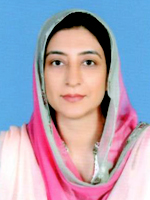
Pakistan Customs: Pushing the borders out through data
World Customs Organization’s slogan for International Customs Day this year is “Data Analysis for Effective Border Management”.
The choice of this slogan is a crucial recognition of the inadequacy of traditional model of border management. Ever increasing flow of people and goods across international borders demands that the customs administrations all over the world start considering out-of-box solutions for problems relating to managing international trade.
It’s no more about frisking each and every passenger that crosses an international border or de-stuffing and examining every container that lands at your port. It’s about identifying and profiling goods and people prior to their arrival and thus ‘pushing the border out’.
The perennial dilemma faced by customs professionals all over the world is to find a balance between trade facilitation and ensuring the security of the international trade supply chain. Access to timely, accurate and actionable information can help customs administration all over the world to make informed decisions and overcome this dilemma to a great extent.
Pakistan Customs stands at the forefront of developing and executing risk-based clearance system. Its web based system for customs clearances processes both import and export related goods declarations and interacts with its users on real time basis. Pakistan customs started its automation drive as early as in year 1992.
However,a fully developed risk-based system of clearance was launched through the introduction of PACCS in the year 2005. Pakistan Customs automation effort came full circle with the launch of Weboc system in the year 2011.
Weboc is an indigenously developed system of clearance, which provides end to end solution for the customs related transactions. An extraordinary feature of the Weboc system is a cache of valuable historic data captured from the date of its operational launch.
This data is used in identifying and intercepting high-risk people, goods, conveyances, and commercial entities. It helps in identifying suspect transactions and also supports Post Clearance Audit function of Pakistan Custms. However there is a need for developing an ‘intelligence cycle’ as customs function moves away from static to more mobile and selective controls.
This cycle can only be developed if there is a system of inter and intra-agency data sharing. Pakistan Customs has launched a timely drive to bring other regulatory entities on WeBOC platform.
Most recent inclusion of data of foreign exchange transactions of importers and exporters in the Customs computerized clearance process has benefited Pakistan Customs by reducing the room for under invoicing.
It has also provided the State Bank of Pakistan (SBP) with a platform to perform its monitoring role in the flow of foreign exchange. In a recent drive for capturing foreign exchange related data, Electronic I-Form (EIF) module has been rolled out. Through this system, it has been made mandatory to submit EIF at the time of the GD filing.
There has also been a greater emphasis on data sharing among international Customs administrations as a means of effective border management to facilitate legitimate trade and to seize illicit goods. Pakistan Customs has upgraded its Electronic Data Interchange (EDI) infrastructure by acquiring cutting edge technology for exchange of export data with one of its largest trading partner China.
This is a major and timely development and aligns with Pakistan’s key role in the CPEC. Pak Afghan transit trade is also being managed between Pakistan and Afghan Customs through end to end data exchange.
While a lot has been achieved, there is a need to further broaden the database and to refine data analysis skills for making Customs risk management system more results oriented. Pakistan Customs welcomes WCO’s initiatives in helping to achieve these objectives and remains committed to developing synergies with its international trading partners for making the world a more secure and trade friendly place.